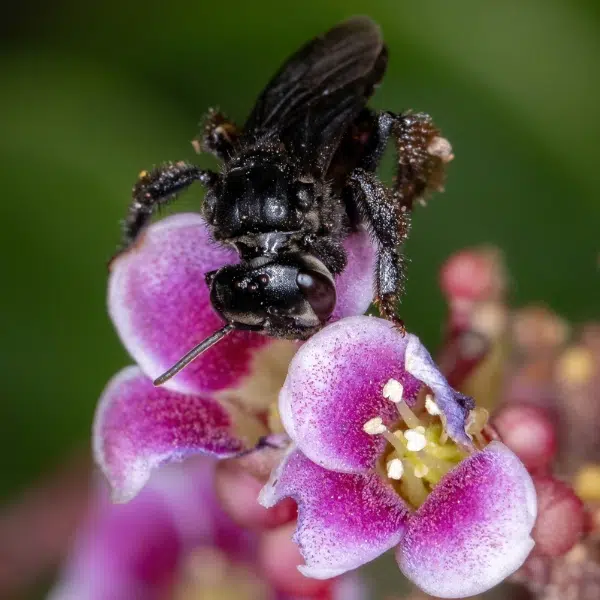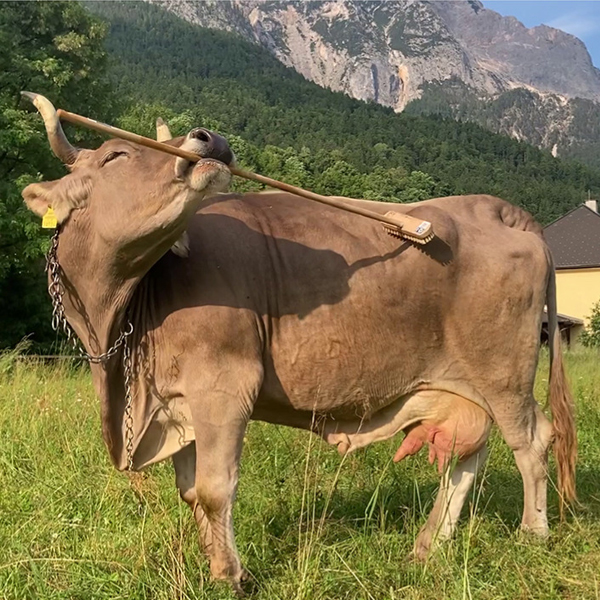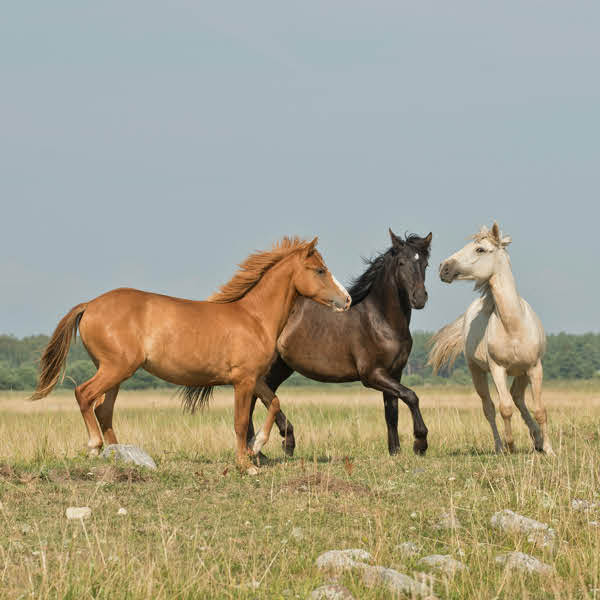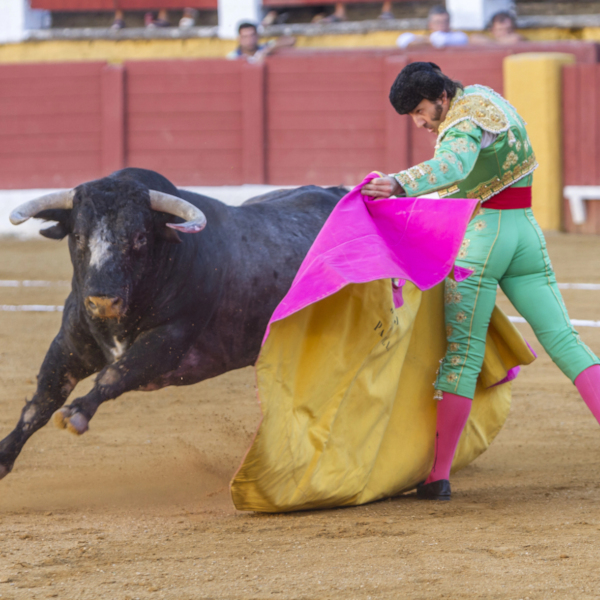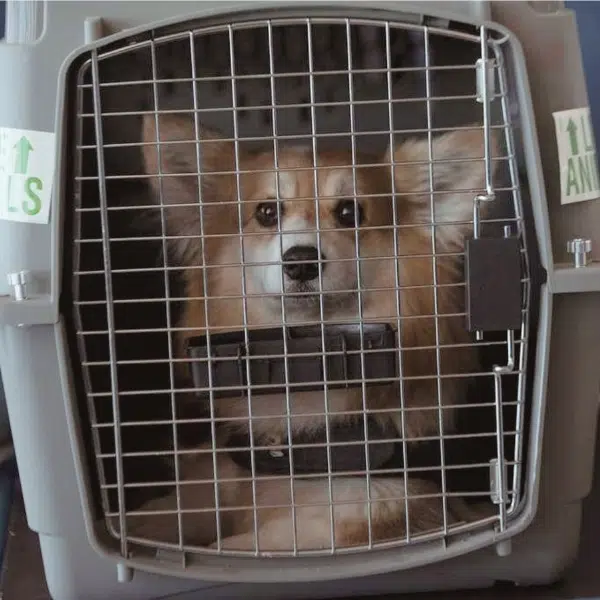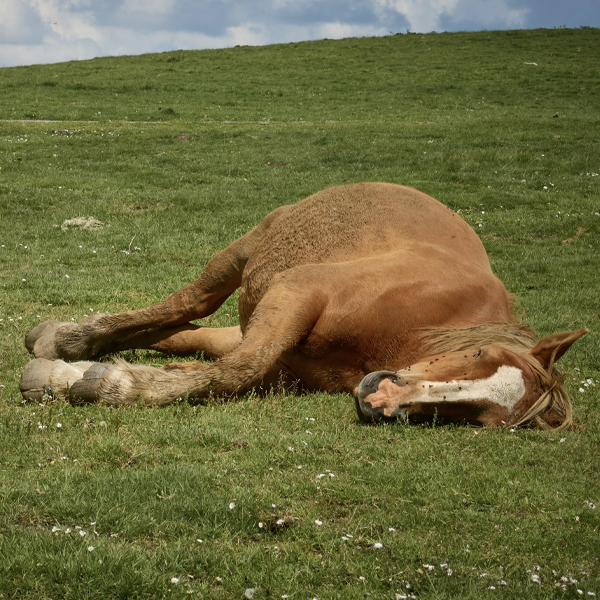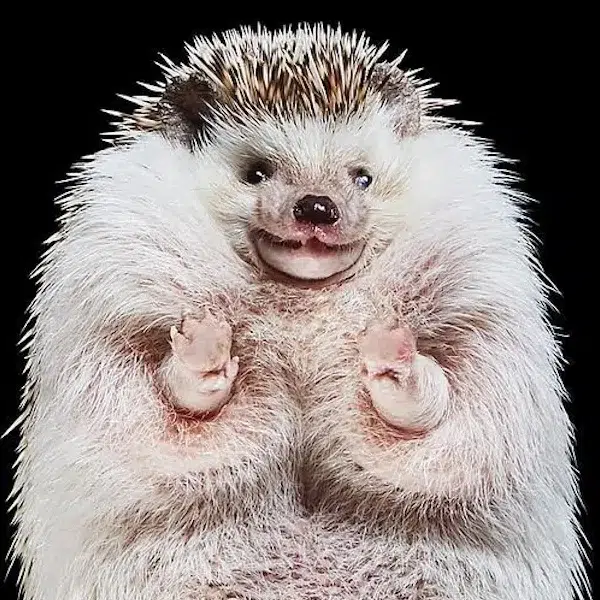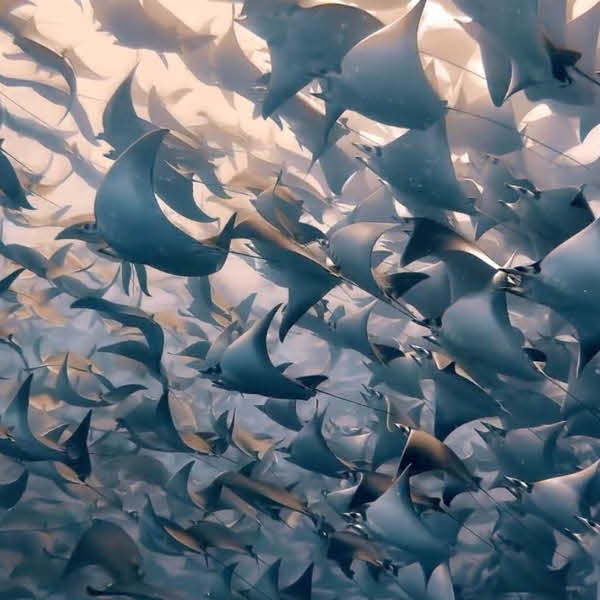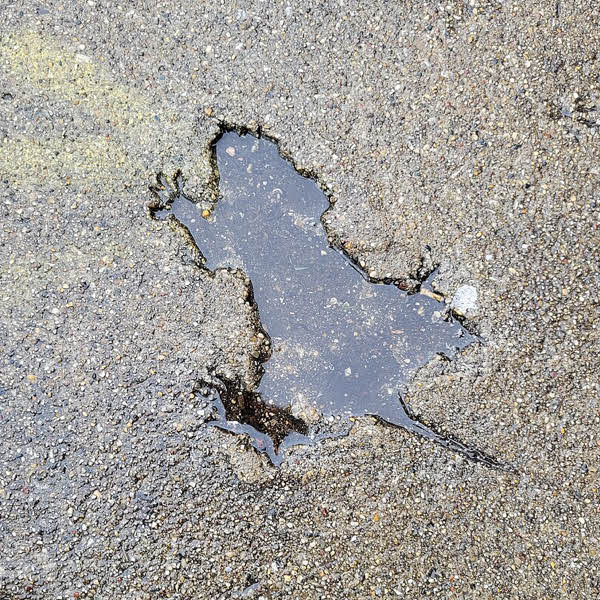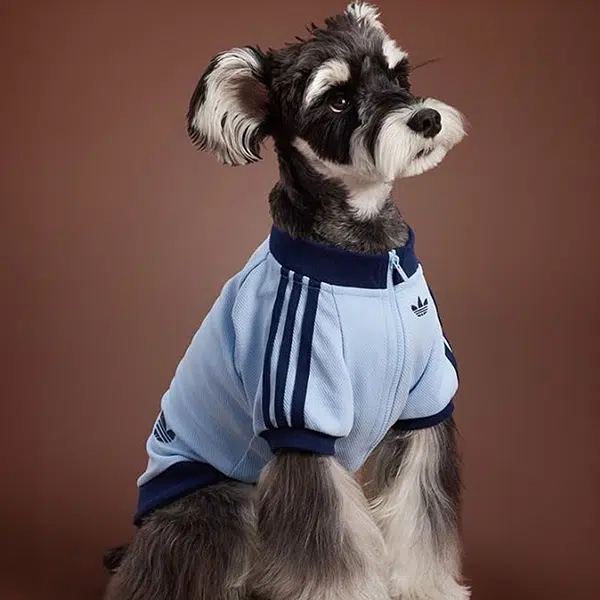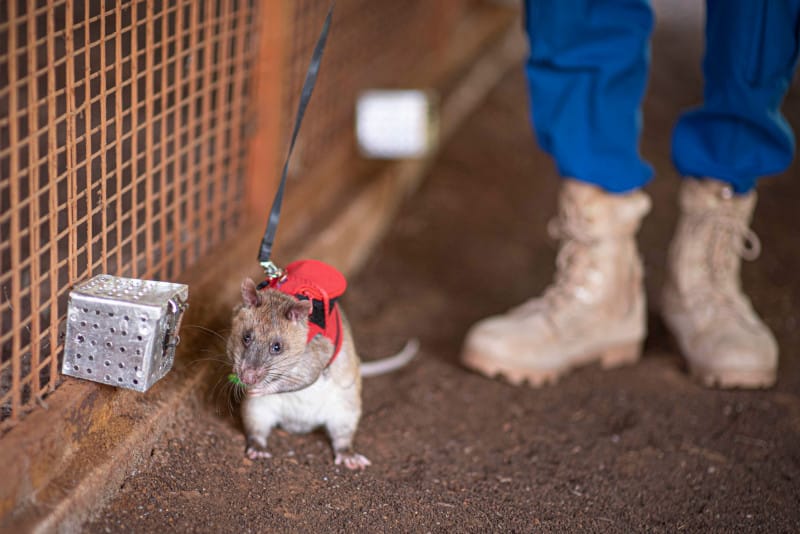
Rats usually get a bad reputation, particularly in big cities. However, in Tanzania, they are hard workers that can save lives with their powerful sense of smell. In fact, they are so good at their job that they've got the moniker “HeroRATs.” On top of being highly trained rodents with a mission, they look absolutely adorable in their work uniforms, which include tiny vests and backpacks.
APOPO, a non-profit organization devoted to training rats and other scent detection animals for humanitarian purposes, is behind this unique operation. In the beginning, APOPO trained rats to locate landmines and detect diseases such as tuberculosis. Now, a study published in Frontiers in Conservation Science has shown they may be just as good at recognizing the scent of illegal animal parts being smuggled in/out, like elephant tusks and rhino horns.
For the study, 11 rats were trained to detect wildlife products inside shipping containers. To achieve this, the rodents learned to identify trafficked wildlife items in a controlled laboratory setting. They also learned how to indicate this to humans by holding their noses close to their concealed target for a few seconds. Later, they were outfitted with vests, measuring how quickly they could trigger an electronic microswitch to signal when they had spotted a wildlife target in a mock port environment. After finding the illegal items, the rats were rewarded with a treat—a mix of avocado, banana, and crushed chow pellets.
“Rats have low training and maintenance costs, flexibly work with multiple handlers, have a long lifespan, and a sophisticated sense of smell,” researchers at their training headquarters in Morogoro, in eastern Tanzania explain. “Their small size also offers unique capabilities for the screening of shipping containers, such as being able to navigate densely packed areas or be lifted to assess contents of sealed containers by screening ventilation systems.”
While this was done in a controlled setting, the organization is already planning to deploy rats in real-life situations sometime in the future—complete with their cute accessories. Dr. Kate Webb, co-first author of the training study says, “The vests are a great example of developing hardware that could be useful across different settings and tasks, including at a shipping port to detect smuggled wildlife.”
A study has shown that rats may be great at recognizing the scent of illegal animal parts, which can help combat wildlife trafficking.
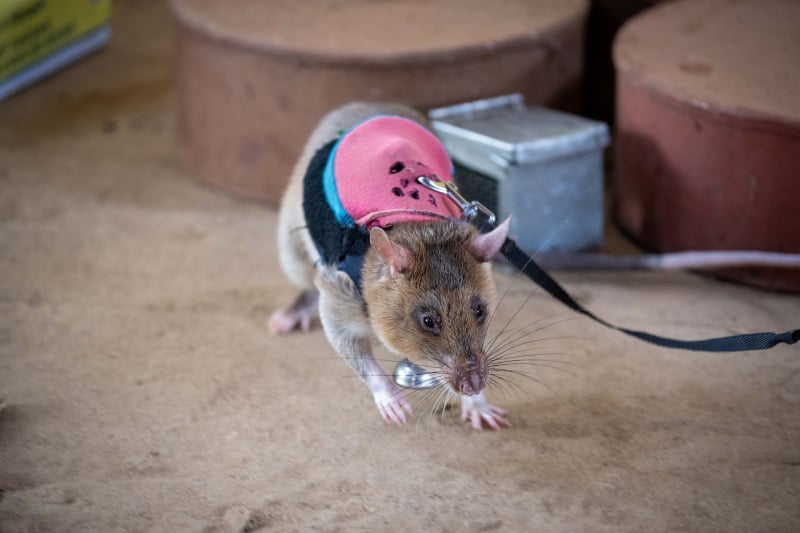
APOPO, a Tanzania-based non-profit is devoted to training rats and other scent detection animals for humanitarian purposes, such as spotting landmines and detecting tuberculosis.
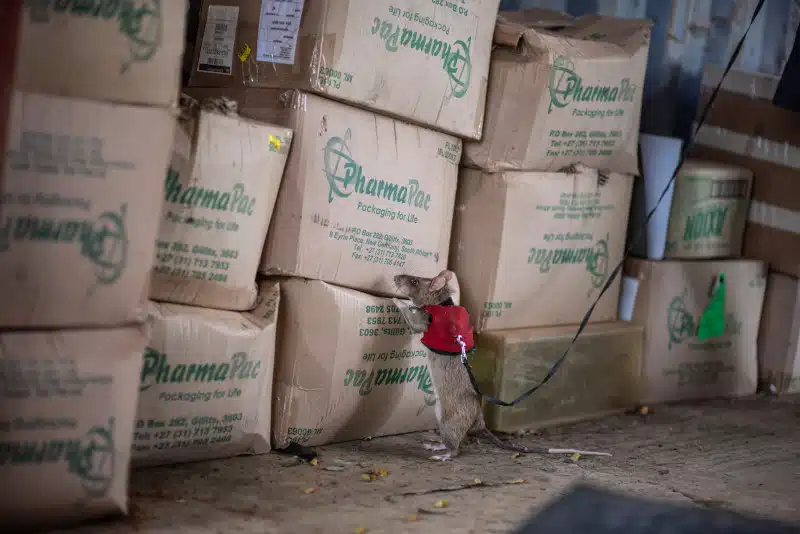
To carry out these missions, the rats got to wear tiny vests and backpacks, making them look adorable in the process.
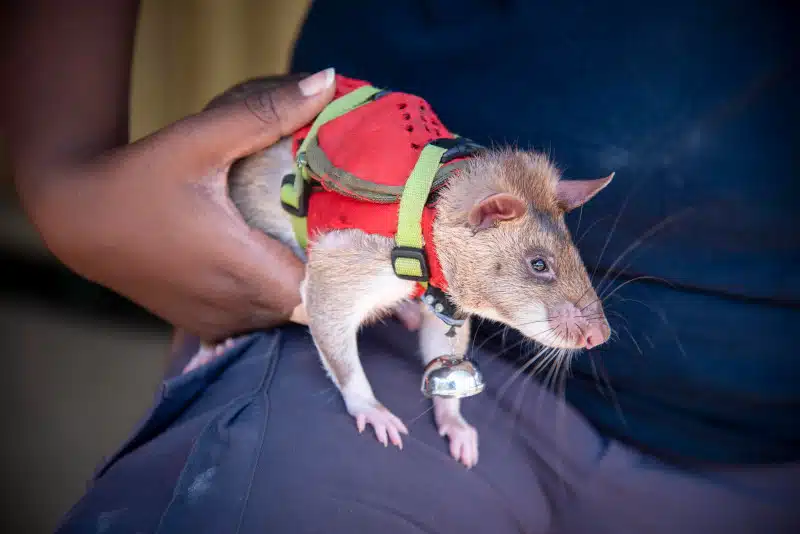
APOPO: Website
Source: Ratting on wildlife crime: training African giant pouched rats to detect illegally trafficked wildlife
All images via APOPO.
Related Articles:
Talented Rats Create Miniature Paintings That Are So Popular, They’ve Sold Out
Handcrafted Rugs Use Rodents as Muses for Art That Imitates Life
‘AnonyMouse’ Street Artists Install Miniature Shops and Restaurants for Mice on City Streets












































































